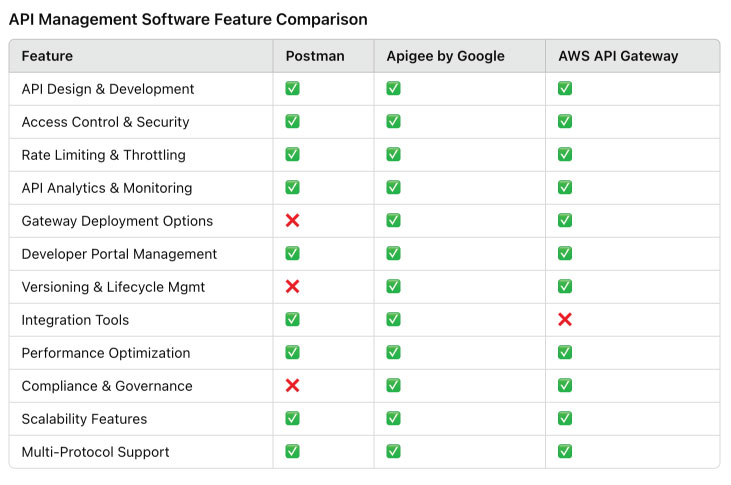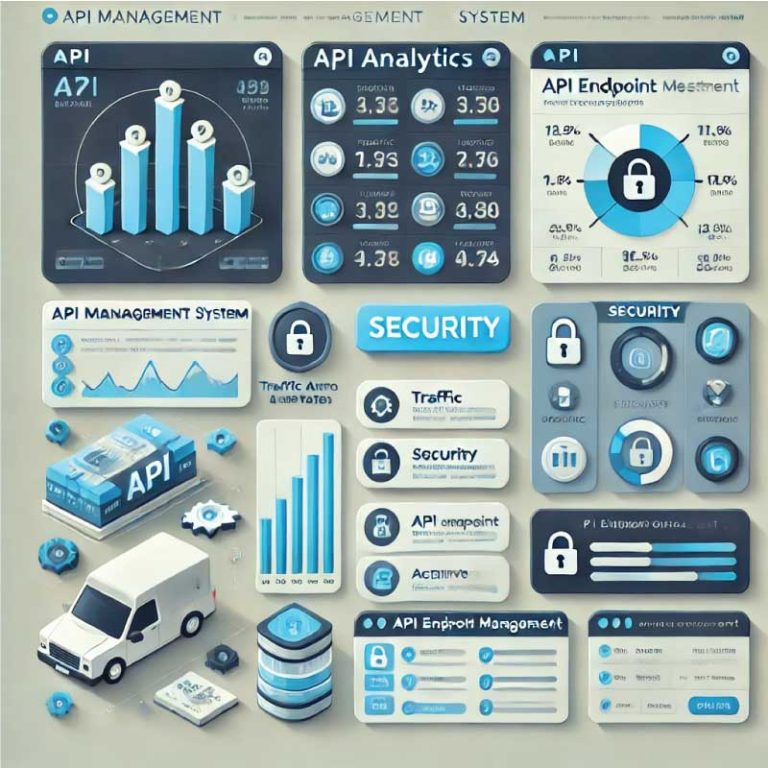API Management Software provides a centralized platform to design, deploy, secure, and monitor application programming interfaces (APIs). It plays a critical role in enabling seamless communication between applications, services, and platforms. Over the past decade, with the rise of microservices and cloud computing, API management has become indispensable for modern software architectures. Prominent tools in this category include Postman, Apigee by Google, AWS API Gateway, Kong, and Mulesoft Anypoint Platform.
This category overlaps with software like integration platforms, which connect disparate systems, and identity and access management (IAM) tools, which focus on user authentication and authorization. API Management Software’s ability to secure, scale, and optimize API usage makes it essential for enterprises adopting digital transformation strategies.

Listed below are several examples of software products used in the API Management Software category.
The table below compares three popular API Management Software solutions, highlighting key features. Use this to evaluate which platform aligns with your organization’s needs.

The feature comparison table offers a clear and insightful overview of the key capabilities provided by three popular API Management Software solutions: Postman, Apigee by Google, and AWS API Gateway. Each platform demonstrates strengths in core areas like API design, security, and analytics, ensuring they meet essential requirements for modern API management.
Apigee by Google emerges as the most feature-complete option, offering advanced tools for gateway deployment, lifecycle management, and compliance, making it an ideal choice for enterprises with complex API needs. AWS API Gateway closely follows with its seamless integration into the AWS ecosystem and strong support for scalability and security, but it lacks some pre-built integration tools compared to Apigee. Postman, while focused on development and testing, lacks advanced gateway deployment and lifecycle management features, making it better suited for API creation and testing rather than comprehensive management.
By highlighting feature availability and gaps, the table helps organizations evaluate which tool aligns best with their needs, whether they prioritize ease of use, enterprise-grade features, or seamless cloud integration.
In this demo, you’ll explore the capabilities of Astera API Management, a platform designed to simplify and enhance the way organizations handle their APIs. The video showcases how the tool streamlines the API lifecycle, from design and deployment to monitoring and optimization, while ensuring robust security and scalability. You’ll see features like intuitive API creation tools, real-time analytics, and seamless integration options in action, providing a clear understanding of how this platform supports efficient and secure communication between systems and applications. Whether you’re managing APIs for internal use or external partners, this demo offers valuable insights into modern API management practices.
This dashboard serves as a centralized hub for managing and monitoring APIs within a system. It provides critical insights into API traffic, performance, and error rates through analytics graphs, while also allowing users to control security settings and manage endpoints efficiently. The intuitive layout ensures ease of use, enabling organizations to optimize API functionality and maintain secure, reliable connections.

API Management Software ensures APIs are consistently monitored, secured, and optimized for high performance. These platforms help organizations overcome common challenges such as excessive API calls, inadequate monitoring, and evolving compliance requirements. Below, we’ll explore key features like API analytics, security measures, and developer portal tools in more detail.
API Management Software ensures APIs are secure, monitored, and optimized for performance while simplifying API consumption and integration.
Yes, many platforms support older API protocols like SOAP in addition to modern REST, GraphQL, and WebSocket APIs.
Common features include OAuth2, API key management, data encryption, rate limiting, and role-based access control.
Yes, lightweight and open-source tools like Kong and Tyk cater to smaller teams, while enterprise-grade solutions like Apigee are ideal for larger organizations.